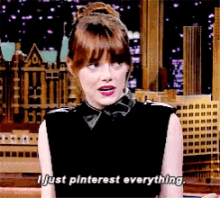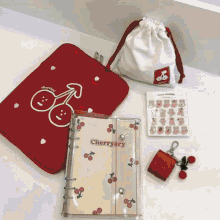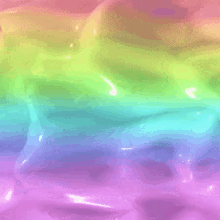‘Influencer culture’. A phrase we are exposed to on a daily (or even hourly) basis – but do we really know what this phrase means? Social media dominates most of our lives, whether you only have the Pinterest or Apple News app, or you're a social media savvy teen who has it all; we constantly have easy access to information at the click of a button or swipe of a finger-with not all of it being beneficial. With such a wealth of information literally at our fingertips; it can be difficult to filter out the good, the bad, and the ugly.
So what is influencer culture? Well, influencer culture is (in a nutshell), an individual's use or exploitation of the media in order to gain fame by reaching a mass audience.
YouTube, Pinterest, Instagram, and TikTok have made this 100 times easier, let's be honest here, how many of us mindlessly reach for our phones in boredom to seek entertainment in the social media realm? This makes us extremely vulnerable to the false views and misinformation that is emphasized heavily to us by these online celebrities – once you scroll through 5 videos all promoting the same ‘trend’ or ‘aspiration’, you passively start to accept it – which can be a dangerous trap to fall into.
Don't get me wrong – not every person on the internet is out to get you, but influencer culture does often do more harm than good, and can actually be more damaging to society as a whole. Take, for example, the ‘clean girl’ TikTok trend, which I will expand on below:
Let us slide into your dms 🥰
Get notified of top trending articles like this one every week! (we won't spam you)The ‘Clean Girl’ TikTok Trend
This TikTok trend is one that everyone knows; and if you don't have social media, you've probably heard friends obsessing over achieving this ridiculous and, frankly, unrealistic beauty standard. This trend emphasizes a minimalistic approach to life, as well as achieving an effortless, glowy, and sophisticated beauty look. Celebrities such as Hailey Bieber and Kylie Jenner have blown up on social media as the ‘it-girls’ of this trend, but it is steeped in hypocrisy and acts as a reminder of the double standards still held by today's society.
As (predominantly) white European and American social media influencers become the new role models of our generation as they slick back their hair with handfuls of gel and embrace their natural beauty with minimal makeup; we are reminded of the thousands of brown and black women who have been shamed, shunned and silenced for practicing these very things that have been an important, embedded part of their culture; revealing the ugly and unhealed scar of truth that still mars the landscape of our society: cultural appropriation and racism are still deeply embedded in our society, and this trend thus serves as a slap in the face to minority ethnic groups.
Is a beauty standard only to be accepted and supported because it is being used by white celebrities?
On the other, less culturally centered side of things, this trend pushes an unachievable standard of beauty on impressionable and vulnerable young women/girls. ‘Glowy skin’ is already an idealistic concept (I know for a fact that on some days my skin is my best friend, whereas on others it just DOES NOT want to cooperate)! Especially during our teenage years, breakouts and periods of heightened skin sensitivity shape the general cycle of our skin, and a flawless complexion is (sometimes) just not possible. Does that make someone any less valuable or loveable?
Social media serves as a double-edged sword in this aspect: whilst it has made life ‘easier’ for the majority of us, the low app age ratings have made these video trends accessible to even the youngest members of our society. This does not exempt these influencers from all accountability: they, of all people, should be thoroughly aware of the lasting impact their videos and content can have on all viewers.

Take the Quiz: What's your Pinterest field tells about you
Your Pinterest field shows your Personality
The ‘Looksmaxxing/Hardmaxxing’ Trend
Trigger warning: mention of eating disorders
Just the same as teenage girls, teenage boys seek role models in the social media realm and this trend is aimed specifically at the teenage male demographic; but it is destroying them from a young, vulnerable age. This trend is basically the masculine equivalent of the ‘clean girl’ trend and promotes unhealthy perceptions of body image.
The ‘Looksmaxxing’ trend encourages teenage boys to adopt habits such as ‘mewing’ in order to achieve toned facial features and participate in extreme, restrictive diets coupled with an intense exercise regime in order to build muscle and achieve the ‘perfect’ masculine physique. The TikToker Dillon Latham is widely known for this trend.
Whilst at first this may seem a perfectly innocent trend that is encouraging men to become healthier versions of themselves and create better habits; this trend ultimately encourages an unhealthy obsession with physical appearance, especially in young teenage boys who are more vulnerable to developing/suffering from body dysmorphia and eating disorders such as anorexia and bulimia. But it does not stop here. The Looksmaxxing trend has amplified into a darker, bone-chilling trend known as 'hardmaxxing', and it is, most probably, the most dangerous trend out there.
The hardmaxxing trend basically encourages self-harm disguised as ‘self-improvement’. Disordered eating comes in the form of ‘Starvemaxxing’ where boys/men are pressured to lose weight via extreme fasting hours coupled with intense exercise.
Techniques such as ‘bone-smashing’ are promoted in order to achieve chiseled and defined facial features, along with the use of steroids and plastic surgery. The use of products such as steroids carries weighty consequences that can jeopardize the health of the individual in the long run: from hair loss to high blood pressure and cataracts, teenage boys can quickly find themselves doing more harm than good to their bodies.
This trend has already left a trail of destruction in its wake, with boys as young as 14 blindly following the advice of these influencers and finding themselves struggling with intense eating disorders, depression, and other mental illnesses. Many are stuck in financial ruts, with some having spent thousands of dollars on expensive skincare products and cologne. It's obvious that this trend is destroying the male youths of our society; leaving them with a broken, toxic, and unhealthy perception of body image and of themselves.
How can we speak of reducing poor mental health and improving the healthy perception of body image when the most vulnerable members of our society are being manipulated right under our noses?
And, unfortunately, it does not end here.
The ‘Coquette Girl’ Trend
This trend is blowing up the online realm as it supposedly encourages women to embrace their inner femininity. Whilst this isn't a bad thing in and of itself, there is a deeper message lying beneath this seemingly innocent trend. The trend encourages the audience to purchase soft, girlish, vintage clothing, decorations, and accessories in order to create a ‘pretty in pink’ lifestyle.
Celebrities such as Lana Del Rey and Olivia Rodrigo have blown up on social media as they embrace this new trend and ‘tap into’ their feminine energy. However, this trend has a darker, deeper message that you, as the audience, can quickly fall for.
The extremely laid-back and almost indifferent attitude to life that many of these female influencers are beginning to adopt whilst dressed in lacy dresses or poofy skirts quite obviously and dangerously nods towards old societal stereotypes of ‘femininity’ that we have worked so hard to break in the 21st century. The definition of the word ‘coquette’ is ‘a flirtatious woman who likes to win the attention of men’, and I'm sure you can already see where I'm going with this.
Why do young teenage girls need to be taught to dress and act solely for the purpose of attracting that ‘male gaze’?
We have worked so hard to break this crazy idea of young girls needing to be validated and affirmed by men, but yet still we are allowing celebrities to promote this trend where their only goal/motive is to appear attractive to men and be that ‘perfect woman’ who looks pretty and doesn't think too much because after all, what man wants a girl like that? This trend is not only harming girls/young women, but males too.
If boys are starting to see women and girls dressing and acting in a way that appeals to them and feeds their male ego, what hope do we have of ever getting rid of ‘toxic masculinity’ and promoting equality between both males and females?
And I know some of you may think that I'm blowing this trend out of proportion, but just answer this one question: If we constantly see our role models acting in a certain way, won't we subconsciously start to accept it and copy it too? This is the reality for the 30% of teenagers who find role models in social media influencers and are exposed to these damaging and unhealthy trends, giving them a distorted view of their personal identity, personal and extended expectations, and how they perceive others around them.
To conclude, I firmly believe that celebrity and influencer culture is damaging our society, rather than nurturing it. Both young boys and girls, the future generation, are being indoctrinated with false messages and ideologies that will, frankly, ruin their perception of themselves and others. Who knows, perhaps this very thing will undo everything we have worked so hard to overcome in our present society?
These trends must stop and these influencers must realise the impact that their words and actions are having on society. How many more will have to suffer before we take action?
It starts with us.
And so, a loving warning to my readers: be careful what you watch and who you follow.







.jpg)








